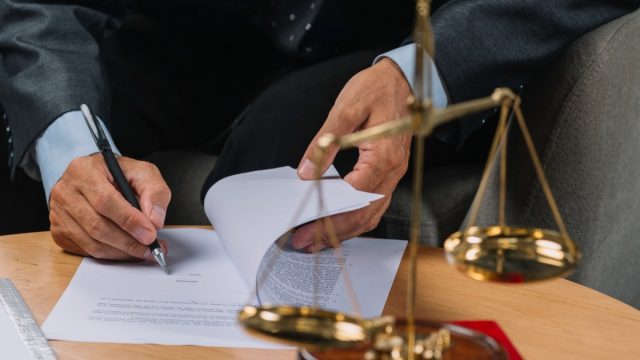Animal bites pose a significant public health concern worldwide, with millions of people reportedly bitten by animals each year. Such incidents not only inflict physical injury but can also lead to severe infections and, in some cases, long-term psychological trauma. The industry of animal control and public safety takes this issue very seriously, as it has implications on community health and legal frameworks. Understanding the interplay between legal recourse, responsible pet ownership, and prevention strategies is essential in mitigating the risks associated with animal bites.
This article will explore where law and personal responsibility intersect in the context of animal bites, showing the various legal avenues available to victims of animal bites while emphasizing the importance of proactive measures to prevent such incidents. The obligations that pet owners must observe to forestall aggressive animal behavior highlights the significant role of education in avoiding animal bites and delineating the process and importance of reporting these incidents. The article will explore the critical steps a victim should undertake, including seeking legal advice, like hiring a Seattle personal injury attorney, to ensure they are justly compensated for their ordeal.
Legal Recourse
Contents
Should you experience an animal bite, it’s imperative to consider your legal options for potential redress. Victims often bear the right to demand restitution for an array of damages, including medical bills, loss of earnings, and the more subjective but equally debilitating pain and suffering endured. When dissecting liability, the spotlight frequently falls upon the animal proprietor. Their accountability hinges on several factors such as prior knowledge of the animal’s aggressiveness, their role in safeguarding against such events, and the adherence or lack thereof to local statutes governing pet ownership. Each case, with its singular characteristics, demands close scrutiny. For this reason, the judicial lens through which incidents are evaluated can vary considerably.
Prevention
When aiming to prevent animal bites, start by respecting an animal’s space, particularly if the animal is not known to you. It is vital for their safety that children learn the proper ways to approach and handle animals, doing so can significantly minimize the likelihood of bites. Responsible pet owners must ensure that their animals receive all necessary vaccinations and are trained to behave well around both people and other animals.
These steps not only diminish the chances of aggressive encounters but also protect the community at large. Implementing a core routine of supervising pets, especially when they are in public spaces, contributes to reducing the risk of unpredictable behavior that might lead to biting incidents.
Reporting Animal Bites
Prompt notification to the local health department or animal control is key when an animal bite occurs. Reporting such incidents does more than just create a record, it initiates an investigation that is vital for determining the potential for disease transmission, notably rabies, and identifying whether the animal has a history of aggression. This investigative process aids in pinpointing where the responsibility lies, which can be instrumental when victims seek to establish liability for their injuries and the subsequent financial, emotional, and physical toll.
Accurate reporting serves as a preventive measure for the community since it helps to identify and ideally address root causes to stave off future bites. Taking into account differing local regulations, pet owners may also be reminded of their duties to maintain control over their animals, therefore contributing to an overall decrease in such incidents.
Legal Obligations of Pet Owners
Owners of pets bear the responsibility of certain legal obligations, a concept firmly established in law to ensure public safety. Keeping pets from becoming a hazard is critical. This involves controlling animals with methods like a leash or enclosing them, and staying current with necessary immunizations. Ignoring these responsibilities could have serious consequences. For example, if a pet bites someone because it was not properly restrained, the owner might face a lawsuit.
The penalties vary from monetary fines to, in severe instances, criminal prosecution, particularly if the pet had a known history of aggression or if the injury caused was substantial. Each area may have slight differences in its regulations, but the central idea is consistent: pet owners are required to prevent their animals from causing injuries. Meeting these duties not only ensures public safety but also protects the owner from possible legal issues.
Seeking Legal Advice
Consulting with a personal injury lawyer should be a priority if you’ve suffered an animal bite. Such a professional is equipped to explain the rights you possess and the recourse available to you, guiding you through the legal steps to claim compensation. Their knowledge becomes particularly useful when identifying the responsible party, whether it’s the pet owner or another entity, and assessing the value of your claim based on the specific circumstances of the incident. Keeping in mind that laws and liabilities vary by jurisdiction, a lawyer’s insight becomes invaluable. They not only can offer a course of action suited to your situation but also represent you, striving to secure a fair settlement for the trauma and financial burdens imposed by the bite.
The threat posed by animal bites is twofold, encompassing both the physical trauma and the attendant legal reverberations. The spectrum of consequences range from medical bills and lost wages to emotional distress. Pet owners’ legal obligations emerge as a central theme, spotlighting the key role of restraint and vaccines in safeguarding public well-being and the narrative advancing the imperative of prevention, advocates for prudent interactions with unknown animals and educated child-pet engagements.


